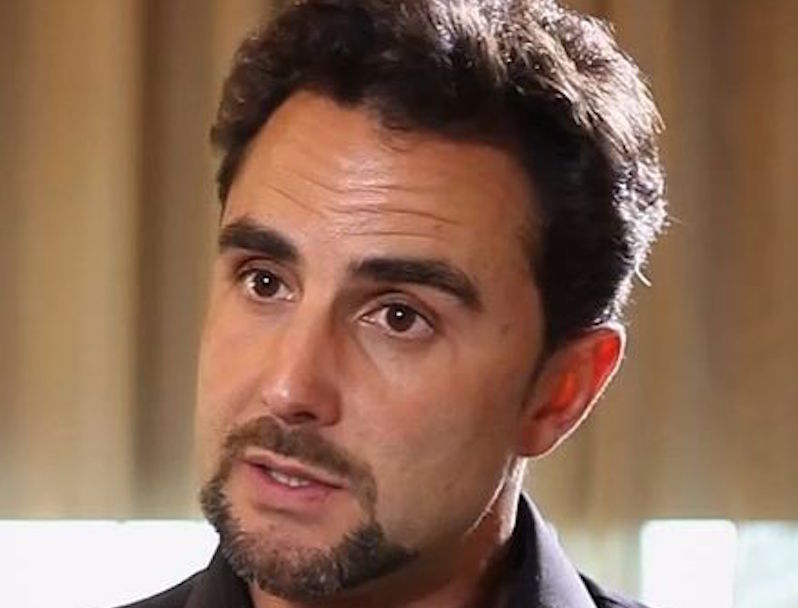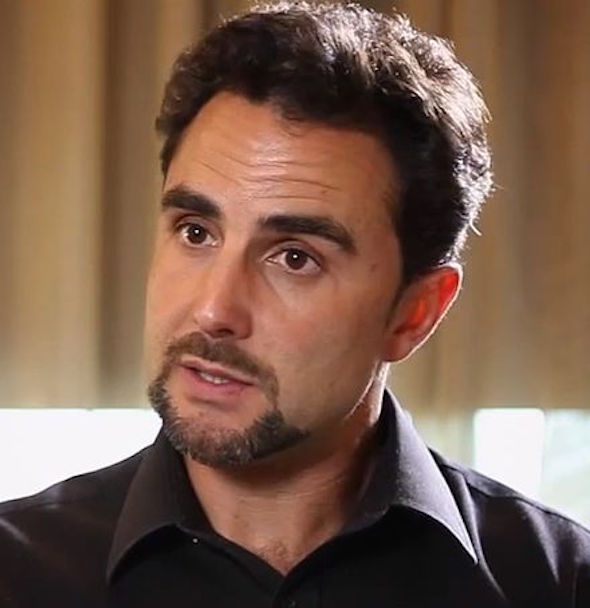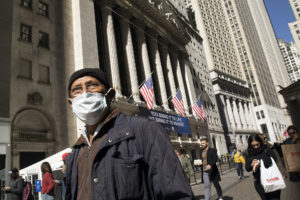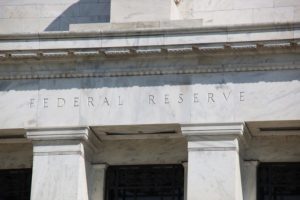Truthdigger of the Week: Offshore-Banking Whistleblower Hervé Falciani
The leaks engineered by "the Edward Snowden of banking" have brought to light malpractice that is costing government treasuries hundreds of billions of dollars each year. The IT expert's action has earned him a five-year prison sentence given in absentia.

Hervé Falciani gives an interview in Spain in June 2012. (eldiario.es/licencia / Wikimedia Commons) (CC-BY-SA 3.0)
Every week the Truthdig editorial staff selects a Truthdigger of the Week, a group or person worthy of recognition for speaking truth to power, breaking the story or blowing the whistle. It is not a lifetime achievement award. Rather, we’re looking for newsmakers whose actions in a given week are worth celebrating.
In Switzerland on Friday, a federal tribunal handed down a five-year sentence against whistleblower Hervé Falciani, whom some have dubbed the “Edward Snowden of banking.”
After Falciani, then an IT expert at HSBC’s Swiss bank, hacked into the bank’s customer files in late 2007 he triggered a major scandal, exposing stunning corruption within an industry built in the shadows. How the offshore banking industry shelters money and hides secrets has enormous implications across the globe: Experts conservatively estimate that $7.6 trillion is held in overseas tax havens, costing government treasuries at least $200 billion a year. As the information leaked by Falciani confirmed, Swiss banks have long been a cash-hoarding haven for those involved in illicit activities like drug running, political corruption and money laundering.
Hired in 2001 to create a client management database, Falciani soon came to realize that the way information was managed by the organization fostered tax evasion. After he proposed a new system, which was rejected by his superiors, Falciani spent the next two years collecting evidence on some 30,000 accounts holding almost $120 billion in assets. His attempt to make the information available to Swiss judicial authorities resulted in his arrest in Switzerland. After his release on bail, Falciani fled to France, where his HSBC data trove ended up in the hands of authorities who subsequently indicted HSBC for illegal direct marketing to French nationals, money laundering and facilitating tax fraud. French authorities, including Christine Lagarde, now managing director of the International Monetary Fund, then shared the data with other countries, including the United States.
The cache of files lifts the lid on a stunning litany of wrongdoing: HSBC routinely allowed clients to withdraw large amounts of cash, often in foreign currencies of little use in Switzerland; they aggressively marketed schemes likely to enable wealthy clients to avoid European taxes; colluded with some clients to conceal undeclared “black” accounts from domestic tax authorities; and provided accounts to international criminals, corrupt businessmen and others who posed a high risk.
A French parliamentary report found that of 2,325 French taxpayers with accounts at HSBC in Switzerland, only three had their affairs in order. The files reveal how HSBC in Switzerland eagerly marketed tax avoidance strategies to its wealthy clients. “The bank proactively contacted clients in 2005 to suggest ways to avoid a new tax levied on the Swiss savings accounts of EU citizens, a measure brought in through a treaty between Switzerland and the EU to tackle secret offshore accounts,” The Guardian reports. “Hollywood stars, shopkeepers, royalty and clothing merchants feature in the files along with the heirs to some of Europe’s biggest fortunes,” the newspaper said.
The documents show that HSBC’s Swiss subsidiary provided banking services to relatives of dictators, people implicated in African corruption scandals and arms industry figures.
“The offshore industry is a major threat for our democratic institutions and our basic social contract,” French economist Thomas Piketty, author of “Capital in the Twenty-First Century,” told the International Consortium of Investigative Journalists. “Financial opacity is one of the key drivers of rising global inequality. It allows a large fraction of top income and top wealth groups to pay negligible tax rates, while the rest of us pay large taxes in order to finance the public goods and services (education, health, infrastructures) that are indispensable for the development process.”
After returning to France, Falciani fled to Spain in 2012 on the advice of the U.S. government. Upon arrival, he was arrested in Barcelona under a Swiss international warrant. As a holder of both Italian and French nationality, Falciani cannot be extradited to Switzerland by either of those countries and is therefore unlikely to serve the sentence he received in absentia. Since the leaks became public, he has been called to assist the Argentine federal taxation agency against money laundering, and in February it was announced that he will collaborate with the Spanish party Podemos to draft measures against tax evasion for the party’s political program.
HSBC was fined more than $40 million by Geneva authorities this year after investigators concluded that “organizational deficiencies” had allowed money laundering to take place at its Swiss subsidiary. French magistrates are currently conducting a criminal investigation into the bank, alleging “complicity in aggravated money laundering and financial fraud,” and HSBC has been ordered to post bail of about $105 million.
“I’m not a white knight, but there is something beautiful and exhilarating about establishing the truth. It carries you through the bad times,” Falciani said in a 2014 interview with French newspaper Le Monde. “I don’t have to worry about a retirement that I won’t have. I don’t have the risk of tomorrow. I can concern myself with something more: we are useful.”
For bringing to light corruption at the heart of the notoriously secretive Swiss banking system, Hervé Falciani is our Truthdigger of the Week.
Your support matters…Independent journalism is under threat and overshadowed by heavily funded mainstream media.
You can help level the playing field. Become a member.
Your tax-deductible contribution keeps us digging beneath the headlines to give you thought-provoking, investigative reporting and analysis that unearths what's really happening- without compromise.
Give today to support our courageous, independent journalists.






You need to be a supporter to comment.
There are currently no responses to this article.
Be the first to respond.